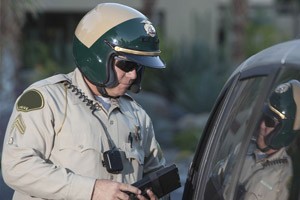Last week’s snow storm was (hopefully) the last of the 2018 Winter season and even marked the first day of Spring. Although the weather is starting to change and get nicer, there are some events that occurred over the last few months that could still affect us moving forward. Unfortunately, that includes the consequences of any arrests for driving while intoxicated or under the influence of alcohol or other drugs. The penalties for being found guilty of DUI/WI or Refusal to Submit to a Breathalyzer test can be devastating for any driver, especially for commercial drivers.
In the past, the Edward M. Janzekovich law blog has discussed issues that affect commercial drivers, including drivers in industries such as trucking and transportation. A recent series of events in New Jersey highlights the fact that commercial drivers in other jobs, such as snowplow drivers, can be affected by the increased strictness regarding drunk driving for commercial drivers. However, the legal issues are even more complicated when a commercial license is involved. An experienced attorney will be able to review your specific situation and may be able to help keep you from losing your commercial license.
Commercial Licenses and Legal Limit
There are many vehicles that can require a commercial license for use. These include expected vehicles such as tractor-trailers and buses and generally require Class A or Class B commercial licenses to driver. Other vehicles, such as snow plows, can become a commercial vehicle in certain circumstances, particularly if they are being used in a commercial capacity through a public or government contract. A Class C commercial license specifically includes:
- If the vehicle is operated by, or under contract with, a public or governmental agency, or religions or other charitable organization or corporation, or is privately operated, and is used for the transportation of children to or from a school, school-connected activity, day camp, summer day camp, summer residence camp, nursery school, child care center, preschool center or other similar places of education.
In New Jersey, if a commercial driver has a blood alcohol content (BAC) level of .04% or higher, this is sufficient for a drunk driving charge while the driver is operating a commercial vehicle. If the same driver is only using a personal vehicle when he or she is pulled over, then the normal .08% BAC limit will apply.
New Jersey Snowplow Driver and Multiple Charges
Recently, a New Jersey commercial snowplow driver was found to be operating his truck with a BAC above the .04% BAC limit for commercial drivers. This was his fourth charge for driving drunk. Normally, he would have already lost his commercial license forever, possibly losing the ability to earn a living and provide for his family and loved ones. Under the New Jersey MVC commercial driver’s license violations rules, a first conviction for drunk driving results in a one-year commercial driver’s license suspension, in addition to any other penalties. A second conviction results in a permanent loss of the commercial driver’s license, in addition to other consequences.
However, two of the driver’s previous arrests occurred over 10 and 15 years ago. An attorney could successfully argue that these past convictions occurred before the driver ever obtained his commercial driver’s license and could not count against his allowed convictions.
Unfortunately, the two newest charges are still currently pending. It is possible that the driver will lose his commercial license if he is convicted on both counts. The matters are still being investigated.
New Jersey Commercial Drunk Driving Lawyer Edward M. Janzekovich Can Help When Your Job is On the Line
A conviction for drinking and driving can mean the difference between having a job and losing the ability to earn a living. If you or someone you know is arrested, charged, or convicted of drunk driving, you want an attorney who will fight for you. A good lawyer can make all the difference. To speak with an experienced New Jersey DWI lawyer about your situation, call us at 732-257-1137 or contact us online today. We serve clients in Ocean County, Monmouth County, Mercer County, Middlesex County, Union County and Somerset County.













